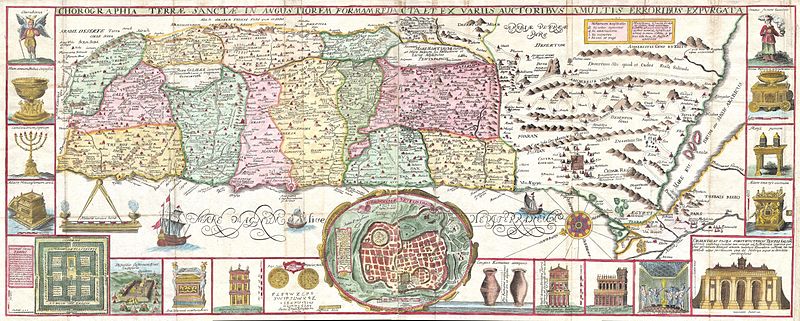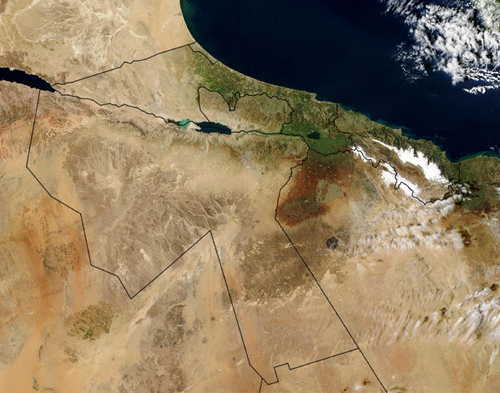In this instance, ורחבה does not mean 'wide'. It means 'spacious' or 'encompassing'.
Certain words take on different shades of meaning in different contexts. Certainly, in the context of רחב as opposed to ארך, it means 'width' as opposed to 'length'. But as an adjective describing something, it means that it is 'broad', 'spacious', 'expansive', or 'encompassing'.
Alex is right in his answer that this portion of davening is derived from the pasuk in parashat Shemot, specifically Shemot 3:8.
וָאֵרֵד לְהַצִּילוֹ מִיַּד מִצְרַיִם וּלְהַעֲלֹתוֹ מִן הָאָרֶץ הַהִוא אֶל אֶרֶץ טוֹבָה וּרְחָבָה אֶל אֶרֶץ זָבַת חָלָב וּדְבָשׁ אֶל מְקוֹם הַכְּנַעֲנִי וְהַחִתִּי וְהָאֱמֹרִי וְהַפְּרִזִּי וְהַחִוִּי וְהַיְבוּסִי:
Judaica Press translates it as:
I have descended to rescue them from the hand[s] of the Egyptians and to bring them up from that land, to a good and spacious land, to a land flowing with milk and honey, to the place of the Canaanites, the Hittites, the Amorites, the Perizzites, the Hivvites, and the Jebusites.
That is, as 'spacious' rather than wide. JPS has it as 'large'.
And that may be the point of the Ramban cited by Alex, at least in the Ramban's first answer:
כי שבח תחלה את הארץ שהיא טובה, לומר שהאוויר טוב ויפה לבני אדם וכל טוב ימצא בה, ושהיא רחבה, שיעמדו בה כל ישראל במרחב.
The word מרחב means "wide open space, spaciousness ; space, room".
In terms of the second answer of the Ramban,
או טעם רחבה שיש בה רחבות, שפלה ועמק ומישור גדולים וקטנים ואין רובה הרים וגאיות.
he seems to be saying that this describes the types of land. A רחבה is an emek, mishor, etc., whether big or small, and it has these sorts of lands rather than mostly mountains.
In terms of the other answers, yes, it does seem that they may have been East-oriented rather than North-oriented, in which case one could claim that it is indeed wide rather than long. But one need not appeal or resort to that.
In terms of the land being objectively not wide -- well, we already rejected that sense here. But still, there are words in Hebrew that take on their specific value based on what they are being compared to. The moon is pretty large, and in Bereishit it is described as one of the שְׁנֵי הַמְּאֹרֹת הַגְּדֹלִים. Yet in the very next pasuk it is described as הַמָּאוֹר הַקָּטֹן. How can it be both big and small. I think this is the type of word Ibn Caspi refers to as מצרף, that it depends on what you are comparing it to. When looking at a world map, sure, Eretz Yisrael is small. But it can still be an אֶרֶץ טוֹבָה וּרְחָבָה.


